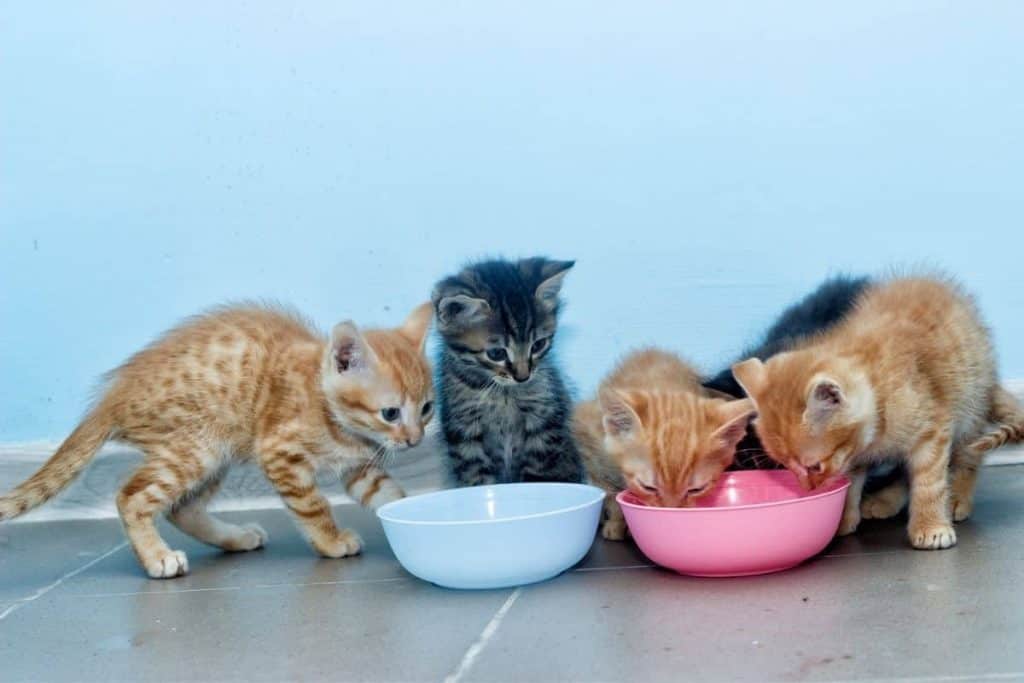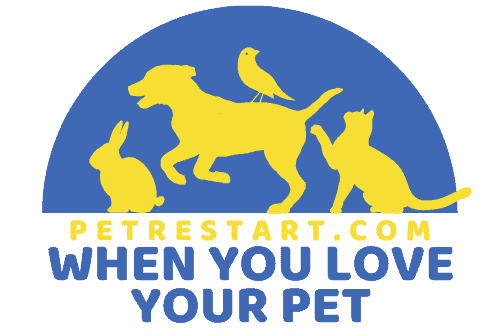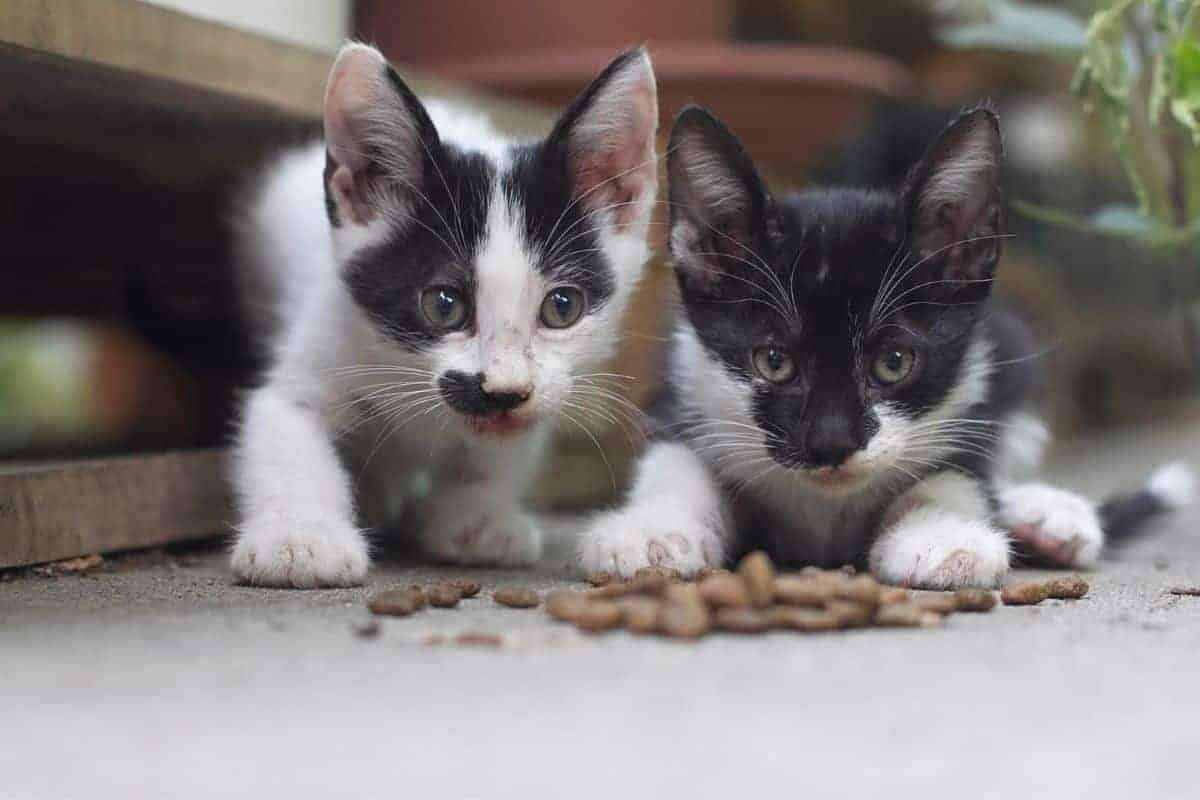Congratulations on the new addition to your family! New pets are always exciting, especially ones as adorable as kittens. Your fluffy friend is going to have a big appetite when you first bring them home, so here’s all you need to know about why your kitten is so hungry all the time, and how to proceed in taking care of them.
Kittens are generally hungry all the time because they are still growing. Kittens use the energy food provides to fuel their rapid growth spurts, as well as their exercise. Because they are growing and running around so much, they’ll need a big and healthy diet to make sure they grow properly.
It’s perfectly normal for your kitten to display a huge appetite, and you need to feed them accordingly. Different owners approach feeding in different ways, and here’s the advice you need to get you started.
Is It Normal For Kittens to Eat a Lot?
Absolutely! Kittens will usually be nursed by their mothers up until about 5 or 6 weeks of age, at which point they will be old enough to start eating the food their owners can provide. Kittens are hyperactive at this age and will remain so until they are about a year old.
When kittens reach 3 months their energy levels will hit a peak and you will notice they are extremely active and extremely hungry. At this age especially they will want to eat constantly, and this is to be expected. Keeping up with your kitten’s dietary requirements is important, especially at the phase in their life when their growth spurt is peaking.
How often should I feed my kitten?
Ideally, you should be giving a 4-6 week-old kitten 3-6 meals a day. Monitor your kitten and their appetite, some will be satisfied with about 3 pouches of wet food per day and some will want more. Younger than 4 weeks and a kitten has the best chance of surviving if left with its mother.
If a kitten cannot be with its mother for some reason, consult professionals and research carefully how to care for it. Older than 6 weeks you can start to transition from wet to dry food, and start free-feeding. Generally though, until they are about 6 months old kittens will need 3-6 portions of food per day.
How big should a kitten’s portions be?
Generally, kitten food will give you advice on how much you should be giving a kitten depending on their age and weight on the bag. It helps to know your kitten’s weight, which you can get from a vet during their first check-up.
From 4 weeks old kittens may want about 3 pouches of wet food per day. Older than 3 months and they should get about ½ a cup of dry food per day. Consult your vet on how big your specific kitten’s portions should be.
How much should very young kittens be eating?
It is ill-advised to adopt a kitten that is younger than 4-8 weeks, as their mother will know best how to monitor their food intake. If you have a rescue kitten that is younger than this and needs feeding, weigh your kitten, and feed it according to its weight. You should be giving it around 2 tablespoons of formula per 4 ounces of body weight every 2 hours.
Kittens that are slightly older and 2-4 weeks should be given the same every 3 or 4 hours. If you cannot find a good shelter or professional to care for a very young kitten, research thoroughly how to take care of them, as they can die very easily if mishandled.
What should I be feeding my kitten if it’s always hungry?

When you first bring a kitten home you should start them on wet foods. This will be ground meat made specially for cats. You can typically get wet foods made specifically for kittens at the pet section of your local store, and a lot of them even come with the exact age range they’re made for.
There is also dry food made for kittens, which will consist of small pellets. Dry food bags should also give you an exact age indicator for when your kitten should be started on them.
When should a kitten start eating dry foods?
Kittens love wet foods so the transition from ground meat to solid pellets may take them a minute. Kittens should be on pellets by about 8 weeks old, and you can mix the foods to make the transition easier.
Supplement the new solid diet with some wet food until your kitten is about 11 to 12 weeks old. At this time their diet can be mainly pellets.
Can I overfeed my kitten?
This is entirely possible. Very young kittens can gorge themselves whenever food is provided, which can lead to sickness and runny tummies.
When you first bring a kitten home if they are about 4 weeks, you need to strictly monitor their food intake and portions. Older than this and kittens will have big appetites, and you can think about free feeding.
Indicators that your kitten is over-eating:
- If they develop diarrhea or a runny stomach
- If their stomachs are taut to a painful point after eating, which you can feel with your finger
- If they are vomiting after eating
- If they are particularly lethargic and exhausted after eating
Monitor your kitten’s eating habits. Some will know how to eat a healthy amount and some won’t. Generally, there’s not much risk of over-feeding past 5 weeks to 4 months, but stay in tune with your animal and adjust their feeding accordingly.
Should you let kittens eat as much as they want?
When kittens are between a few weeks and 4 months, typically yes. This is their growth spurt period, and they will be needing a lot of energy and nutrients to grow. Unless your kitten is obese or underage, there’s no real chance of harming a kitten by giving it as much food as it wants.
Once your kitten is on dry food, you can consider full-time free feeding. This means leaving food out in your kitten’s bowl and topping it up whenever the food runs out so your kitten can eat whenever it pleases.
Some owners do prefer to feed on a schedule at regular intervals throughout the day, it all depends on you and your kitten’s needs. The important thing is that they never go hungry.
Pros and cons of free feeding
Pros:
- You can be sure your kitten will never go hungry
- Your kitten can decide for itself when it wants to eat and when it doesn’t
- Your kitten can decide how much it wants to eat for itself
- You don’t have to factor feeding times into your schedule
Cons:
- Obese kittens benefit from more structured feeding times as they tend to over-eat
- Some kittens display impulse control when it comes to food and will eat everything provided to them until they are sick
- You cannot free-feed wet food as it goes off very quickly and can attract bugs if left unattended
When is my kitten’s appetite a cause for concern?
Kitten’s having big appetites is to be expected, but sometimes there are other causes for constant hunger. If your kitten is still displaying extreme hunger after being fed all day, you may need to check for the following:
- Diabetes
Kittens can indeed get diabetes and will eat constantly to try and gain the nutrients to create insulin. If your cat shows an extreme increase in appetite, thirst, urination, and weight loss, consult a vet immediately.
- Parasites
Parasitize like worms will eat your kitten’s food for them and leave them without their needed nutrients. Signs of worms are weight loss with an increase in appetite, vomiting, and worms visible in cat feces. If you suspect your kitten may have worms, give them a deworming tablet as soon as possible. Fleas are carriers of worm eggs, so make sure your kitten is healthy and parasite-free
- Stress
Over-eating as a coping method for distress or boredom is something usually only found in older cats, but your kitten’s mental health is important too. Kittens should always be provided with a safe and stimulating environment for them to play and grow.
If your kitten’s space is repressive or makes them nervous, they may overeat as a coping mechanism. Make sure you research well what a kitten’s living area and daily routine should be like before you bring your new friend home.
Conclusion
In conclusion, your kitten is generally so hungry all the time because it is supposed to be. Big appetites are to be expected, so make sure you as a new owner can monitor and keep up with your kitty’s needs. If you are concerned about your kitten having an unnatural appetite, consult a vet or other professional.
These Articles May Also Interest You:
- Cat Food Vs. Kitten Food: Two Differences That Matter
- Do Kittens Eat More During Growth Spurts?
- What to Do if Your Cat Only Eats Treats
Frequently Asked Questions
Why do kittens overeat?
Kittens may overeat for various reasons, such as rapid growth, high metabolic rate, and the need for more nutrition during their growing stages. Overeating could also be a result of a stretched stomach, which occurs when a kitten regularly consumes large meals. For some kittens, overeating may simply be due to greed, seeking comfort, or boredom source.
How can I tell if my kitten is eating too much?
Signs that your kitten may be eating too much include consistent weight gain, difficulty exercising, or frequently demanding more food even after meals. To determine whether your kitten is truly overeating, consult with your veterinarian. They can help evaluate your kitten’s growth, weight, and general health, and provide guidance on appropriate dietary plans source.
What causes a cat to be constantly hungry?
Several factors can cause constant hunger in cats, including greed, an increased need for calories, boredom, or medical issues source. Some medical conditions that may cause increased hunger include diabetes, underactive thyroid, and malabsorption issues source. If your cat’s hunger is accompanied by other symptoms, consult your veterinarian for proper diagnosis and treatment.
At what age can kittens regulate their food intake?
Kittens usually gain better control over their food intake once they reach adulthood, which is around one year of age source. However, every cat is different, and some may take longer to learn self-regulation when it comes to food intake. It is essential to gradually adjust your kitten’s diet as it grows, ensuring it receives proper nutrients without overfeeding.
How can I prevent my kitten from overeating?
To prevent your kitten from overeating, establish a consistent feeding schedule with measured portions to control calorie intake source. Be sure to choose high-quality kitten food to ensure they receive the necessary nutrients, and consult with your veterinarian for feeding recommendations and guidelines.
Can certain medical conditions make kittens always hungry?
Yes, certain medical conditions can make kittens always hungry. For example, diabetes can cause increased hunger due to an insulin shortage or incorrect response to insulin produced in the body. Other medical conditions that can cause constant hunger in cats include underactive thyroid, malabsorption issues, or intestinal parasites like worms source. If you suspect your kitten has a medical condition causing its increased hunger, consult your veterinarian for diagnosis and appropriate treatment.





